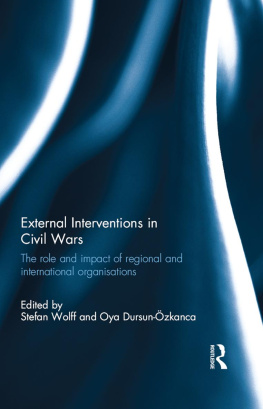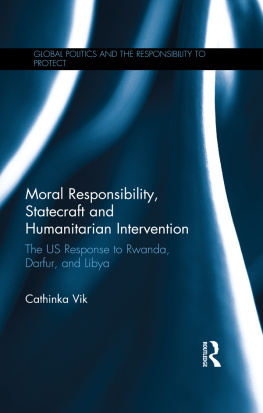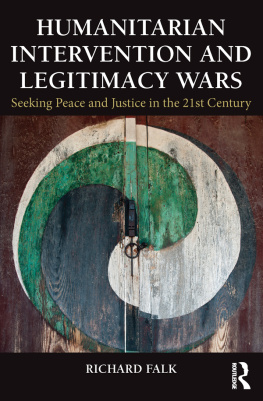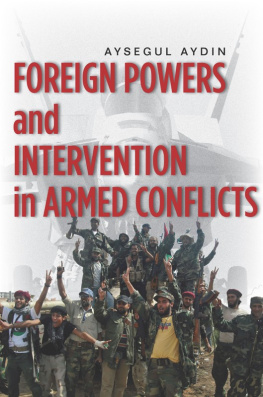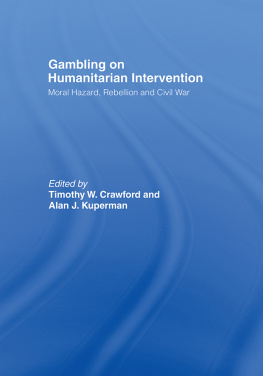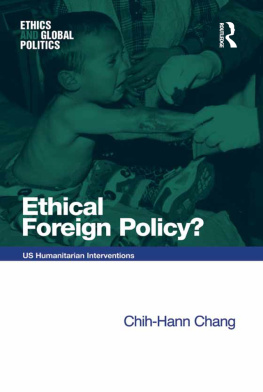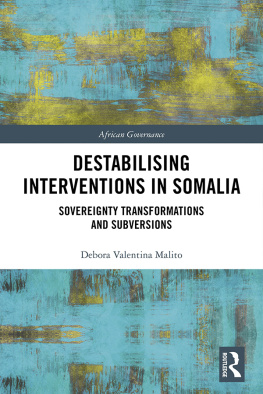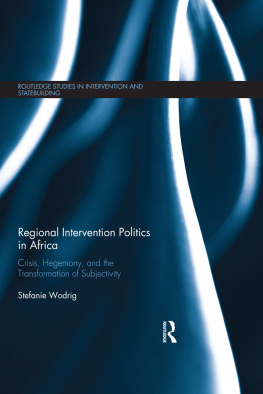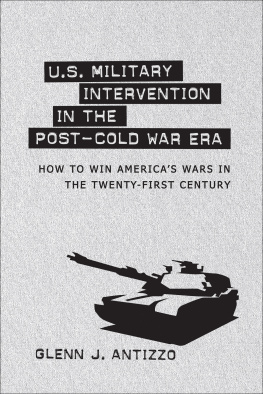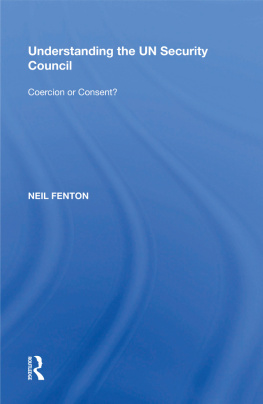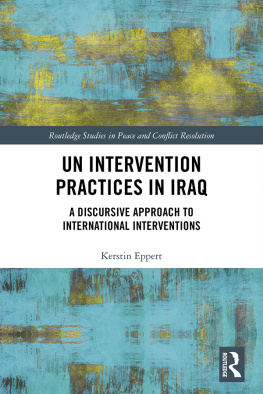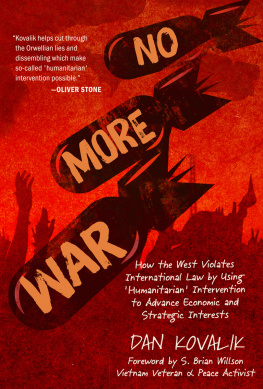First published August 2002 by Oxford University Press for
The International Institute for Strategic Studies
Arundel House, 1315 Arundel Street, Temple Place, London WC2R 3DX
This reprint published by Routledge
2 Park Square, Milton Park, Abingdon, Oxon 0X14 4RN
For The International Institute for Stategic Studies
Arundel House, 13-15 Arundel Street, Temple Place, London, WC2R 3DX
www.iiss.org
Simultaneously published in the USA and Canada
by Routledge
711 Third Avenue, New York, NY 10017
Routledge is an imprint of the Taylor & Francis Group, an informa business
The International Institute for Strategic Studies 2002
Director John Chipman
Editor Mats R. Berdal
Assistant Editor Charles Hebbert
All rights reserved. No part of this publication may be reproduced, stored in a retrieval system or transmitted in any form or by any means, electronic, mechanical or photo-copying, recording or otherwise, without the prior permission of The International Institute for Strategic Studies. Within the UK, exceptions are allowed in respect of any fair dealing for the purpose of research or private study, or criticism or review, as permitted under the Copyright, Designs and Patents Act, 1988, or in the case of reprographic reproduction in accordance with the terms of the licences issued by the Copyright Licensing Agency. Enquiries concerning reproduction outside these terms and in other countries should be sent to the publisher.
This book is sold subject to the condition that it shall not, by way of trade or otherwise, be lent, re-sold, hired out or otherwise circulated without the publishers prior consent in any form of binding or cover other than that in which it is published and without a similar condition including this condition being imposed on the subsequent purchaser.
British Library Cataloguing in Publication Data
Data available
Library of Congress Cataloguing in Publication Data
ISBN 0-19-851678-9
ISSN 0567-932X
Introduction
States have traditionally employed a range of means to pursue their objectives in international relations. The most extreme is war organised force exercised from outside in order to change the policies of an adversary or to destroy it. Less extreme is intervention the coercive attempt to change the internal political balance of another state. This may take different forms: in order to remove an uncooperative or hostile government, one might support its domestic adversaries. Alternatively, the desire to preserve an allied or friendly government threatened by internal dissent might evoke external assistance to that government in its internal struggle.
This paper examines the place of intervention in contemporary world politics. It asks whether the role and nature of intervention has changed in the post-Cold War era, and, if so, in what ways. One key issue here is the extent to which intervention has been transformed from its traditional role as a vehicle for the promotion of the political interests of states into a mechanism for the promotion of purportedly universal norms. There are two aspects to the post-Cold War normative dimension of intervention. The first is the defence of human rights; in particular, to what extent is there evidence of an emerging solidarist Secondly, in a number of cases in the 1990s (e.g., Haiti in 1994 and Sierra Leone in 1997), interventions were ostensibly undertaken to restore democratic regimes that had fallen victim to military coups. It may be becoming legitimate for international actors to use force to promote particular forms of internal state arrangements.
Hedley Bull once noted the general presumption in international relations that intervention was wrong, in that it violated the normal jurisdiction of states. The moral basis of the principle of non-intervention was summarised by Adam Roberts:
It provides clear guidelines for limiting the uses of armed force and reducing the risk of war between armies of different states. It involves respect for different societies with varying religions, cultures, economic systems and political arrangements. It acts as a brake on the crusading, territorial and imperial ambitions of states.
Bull and Roberts also recognised that most reasonable people would accept that in particular instances there might be compelling reasons to override this general presumption on normative or other grounds. The emergence of solidarist norms legitimating intervention would considerably broaden the category of exceptions and would correspondingly weaken the principle of non-intervention. In the extreme, it might be suggested that these solidarist concerns are displacing more political and self-interested considerations as motivations for interference in the domestic affairs of other states. The latter remain largely proscribed by the principle of non-intervention; the former may be gaining legal status and general acceptance in international society.
That this enhancement of the normative nature of intervention is considered a very important aspect of its evolution in the international system is evident in the burgeoning literature on the ethics and law of intervention. However, the normative dimension is only part of the broader question of the role of intervention as a political/military instrument that states use to pursue their perceived interests. Here one might ask whether the changing structural (and normative) conditions of the post-Cold War era altered states predisposition to engage in intervention and the ways in which they did so. Finally, the discussion of intervention has been overwhelmingly focused on state practice and on the norms pertaining to states. Yet a number of other groups have emerged that engage in interventionist behaviour. Moreover, the activities of transnational groups, interventionist or not, may create new incentives for intervention. How has the emergence or growing significance of non-state (transnational or multilateral) actors in the post-Cold War era affected the practice of intervention and its significance in international politics? To put the matter more simply, has the development of the international system brought new or different answers to these questions:


